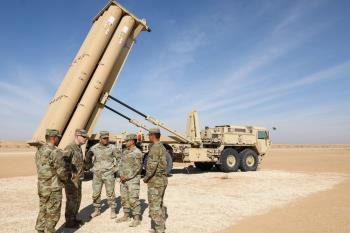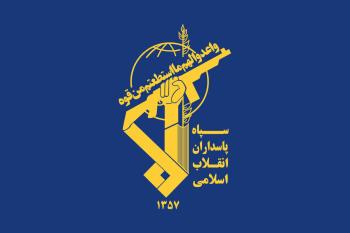Alwaght- In late March last year, during a meeting with members of the US Institute of "the Middle East", Barzani linked the independence of the Iraqi Kurdistan region to a referendum; however, in the recent statement of the Kurdistan region President, there was no claim about such a referendum and he has just stressed on coordination with the central government in Baghdad and finding a peaceful way.
on Thursday September 24, 2015 about two days after the interview of Massoud Barzani, the president of the Iraqi Kurdistan region, with the Russian TV of 'Russia 24' issued a statement to deny the most outstanding point of the interview and released the revised version of the interview. This point was related to the autonomy of Iraqi Kurdistan region from Iraq, and Russia 24 had interpreted Barzani's words in this way: "for the time being, it is not possible for the Kurdish region to declare its independence, and it is not only for political reasons, rather it is because of the security situation and the crisis in Iraq." The president of the Kurdistan region in its statement released as part of the interview in which not a slightest reference is made to the impracticability of autonomy, and even mentioned this measure of the Kurdistan region in line with protecting the sovereignty of the region, and tried to reiterate Barzani's former instance towards the autonomy of the Kurdistan region. The President's statement attributed the mistake of the Russia 24 to the mistranslation of the Arabic department of the channel, a point that Russia 24 should be held responsible for. Nevertheless, regardless of the authenticity of the claims made by the head of the Kurdistan region, and the likely response of the Russia 24 TV channel, it should be admitted that the interview once again has turned the autonomy of the Kurdistan region to a controversial subject, and even the President's statement and the revised version of the interview reveal that there have been some changes in attitudes of Barzani compared to his former views in the last 18 months.
In fact, he set forth the question of autonomy of the Kurdistan region with talks about referendum, and in early July, Barzani headed to the Parliament to demand the members of the Parliament to make the arrangements for autonomy referendum; however, step by step he denied his claims. One of the reasons that made Barzani to withdraw from his claims was the opposition of the regional and trans-regional countries to his demand; however, the moderate stance of Ankara served as the green light to him. Another reason was the other issues created by the ISIS attacks against the Kurdistan region, and the upcoming crises. As it appears that Barzani has preferred not to raise the question of referendum while Iraq is busy combating ISIS terrorist group. Now, he talks about autonomy but not referendum. Nevertheless, the war with the ISIS has reached a steady state, and currently the last year's dangers are not felt in Erbil any more. Barazani's speech should be interpreted with regard to current conditions of the region and Iraq, as Barzani himself in this interview has also pointed to these conditions. Besides, one should take into account the present domestic conditions of the Kurdistan region, especially the political crisis, over determining the next president of the Kurdistan region. When Barzani raised the question of autonomy through a referendum, he was relying on receiving support from Ankara and the government of Prime Minister Recep Tayyip Erdogan rather than Baghdad. However, he enjoyed the implicit support of Ankara. Now that Erdogan as the president of Turkey has staged a war against the Kurds and the PKK and has spread out war to northern Iraq, Barzani cannot expect support from Erdogan anymore. With regard to current conditions of the region, the opposition of regional and trans-regional countries to the referendum is more serious than last year, because these countries in the current war against terrorism and ISIS are no longer willing to face a similar challenge. However, the question of autonomy has its own effectiveness in Kurdistan region, and that is why he still uses this card. For several months, there have been heated debates between the Democratic Party of Barzani with other political parties to whether continue the leadership of Barzani over the Kurdistan region. Although his term in office has ended last August, but he has refused to step down from power. In contrast, all parties except the Democratic Party of Kurdistan agree that he should step down from the presidency of the Kurdistan region. As Kaveh Mohammad, the representative of Goran in the Iraqi parliament, said: "The Movement for Change and other Kurdish parties, agree that any individual other than Barzani, even the son of Massoud Barzani can take office as the president of the Kurdistan region." The seventh meeting of the parties of the Kurdistan region including Democratic Party of the Kurdistan region, the Patriotic Union of Kurdistan (PUK), Goran, Islamic Union and the Islamic congregation was held on Sunday 13 September. However, the same as previous meetings, it was unsuccessful because the Democratic Party, unlike other four parties still insists on Presidency of Barzani. In these circumstances, to strengthen his position, Barzani once again raised the question of autonomy of the Kurdistan region, so that he can make use of it in his political competition with other parties. In this way, he is trying to link the question of autonomy to continuation of his presidency, and make the opposition parties in the region to face the challenges of public opinion. This is clearly a political strategy, without any real.


























